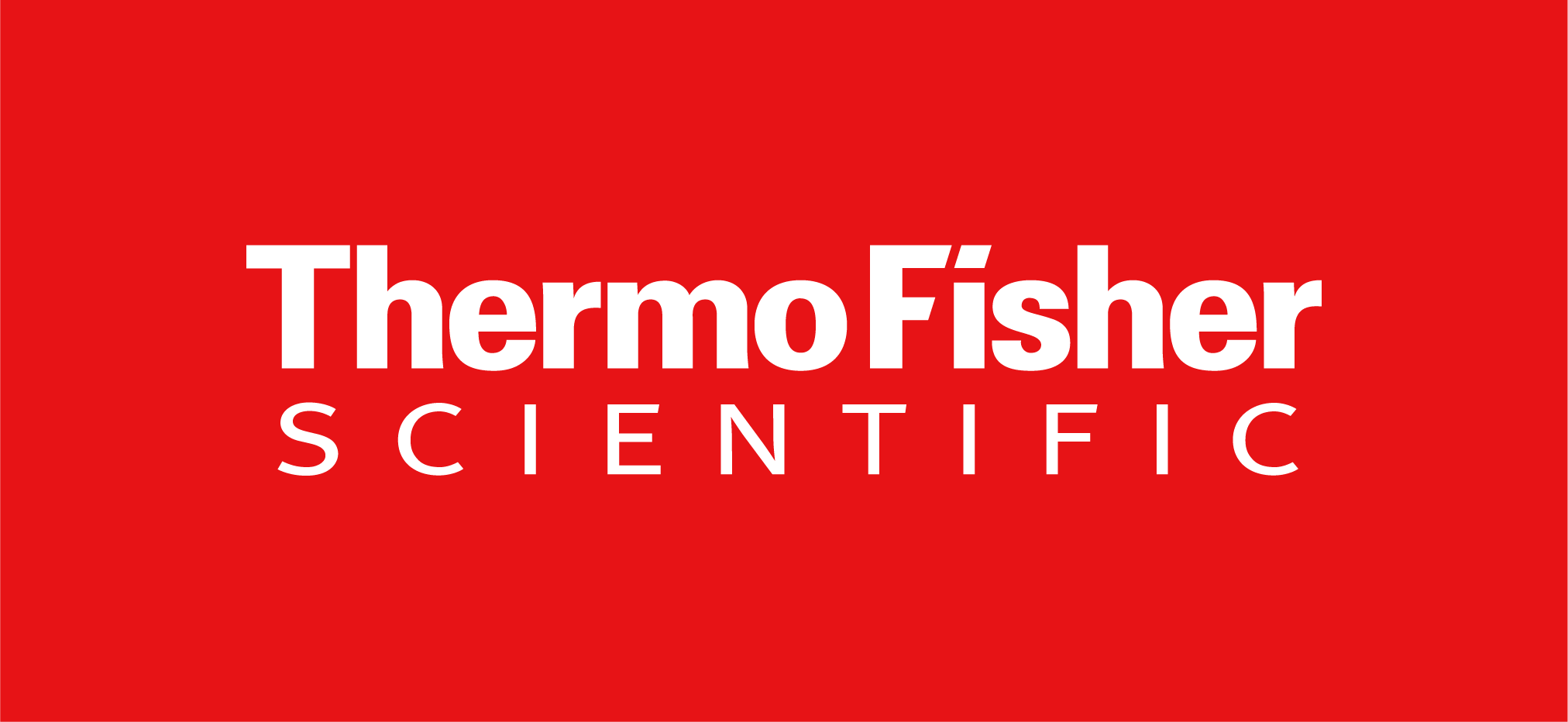
-
Our Mission
Everything we do starts with our Mission: to enable our customers to make the world healthier, cleaner, and safer.
Read More -
Our Mission
Everything we do starts with our Mission: to enable our customers to make the world healthier, cleaner, and safer.
Read More -
Our Mission
Everything we do starts with our Mission: to enable our customers to make the world healthier, cleaner, and safer.
Read More-
- Customer Stories
- Removing the word serial with rapid DNA
- Turning the tap on without fear
- Second shot at life
- Mission in a Minute
- Creating Empowerment Opportunities in the Veterinary Sciences
- Building hope and affordable homes in Michigan
- Preeclampsia
- This Girl is On Fire
- Counting on You
- Allergy Diagnostic Tests Help Ambitious Tennis Player Get Back in the Game
- Tackling Crime by Trading Punishment for Treatment
- POWER Act Aims to Fund Science-based Technology to Address Opioid Crisis
- Supporting connections that lead to life-saving medical care
- Microbiologist's near-fatal battle with sepsis highlights urgent need for awareness and better treatment protocols
- An Icelandic volcano expedition exploring newly formed lava tubes uncovers insights into Earth's origins.
- How Thermo Fisher Scientific colleagues partner with Ronald McDonald House to support families of pediatric patients
- This is a test
- This is another test for a tutorial!
- Text and Image Demo
- Survivor of domestic violence finds new hope with prosthetic hand
- Thermo Fisher colleagues’ passion to advance HIV clinical trials help make lifesaving therapies a reality
- Clean the World and Thermo Fisher volunteers support communities hard hit by natural disaster
- Thermo Fisher volunteers assemble birthing kits to support underserved mothers and babies
- Life-saving allergy treatment
- Water wise
- Better texture for better batteries
- Lab automation goes viral in honeybee disease research
- How NIH funding transforms organ transplantation
- Thermo Fisher Scientific launches state-of-the-art Advanced Therapies Collaboration Center
- Discovery opens doors for cheaper and quicker battery manufacturing
- Tufts Center study shows integrated drug development services could speed delivery of new therapies to patients up to 3 years faster
- This is a new test
- Thermo Fisher opens the Centre for Advanced Training and Innovative Research to build the next generation of scientists in South Africa
- Thermo Fisher collaboration with Project HOPE helps create opportunities for Nigerian youth
- Thermo Fisher and Rise Against Hunger provide lifesaving support in Haiti
- New Thermo Fisher manufacturing facility boosts U.S. supply chain resilience and creates jobs
- Science and genetic testing buy Stage 4 lung cancer patient 10 more years, and counting

Innovation, speed and scale to empower the future of drug development
Our values
Maximizing efficiency and reducing bottlenecks across the drug development continuum is critical to delivering life-changing therapies to patients. This is why flexibility – in strategy and solutions – and the power of collaboration are foundational to accelerating drug development, from research through commercialization.
This year at BIO International Convention, we’re showcasing how, through Accelerator™ Drug Development, we tailor our solutions to support our biotech and biopharma customers’ unique needs. We integrate our proven expertise, global reach and broad capabilities – from bioprocessing to clinical supply and clinical research services and manufacturing – to drive the innovation, productivity and scalability that empower the future of drug development.
Watch here for highlights from Thermo Fisher’s BIO International panel discussions on topics ranging from industry trends and sustainability to the power of partnerships and how to break into biotech.
How Thermo Fisher Scientific combats climate change on its path to net zero
"As a company, we realize that investing in fossil fuel infrastructure now could lock us into a future of high emissions that is incompatible with our climate goals. Acting with urgency is not just a moral imperative—it’s also smart business," says Matthew Yamatin in his interview about his passion for sustainability and how transitioning to a low-carbon economy will create both challenges and opportunities for innovation and growth at Thermo Fisher.

Breaking News
Tufts Center study shows integrated drug development services could speed delivery of new therapies to patients up to 3 years faster
New life-changing medicines could be developed for patients up to 34 months faster, and drug developers could reap the benefits of getting to market quicker, if biotech and biopharmaceutical companies work with a single, integrated service provider instead of the multiple suppliers they now outsource to, according to a new study by the Tufts Center for the Study of Drug Development (CSDD) at Tufts University.
Thought leadership
Hear from our CEO before heading to BIO International
Thermo Fisher plays a pivotal role in bringing new life-changing therapies to patients by supporting our customers with the technologies and expertise that help them push the boundaries of what’s possible. From contract development and manufacturing, to bioprocessing technologies, to clinical research and management of clinical trials, to navigating regulatory approvals and commercial production – our capabilities help customers bring new therapies to market, more swiftly and efficiently than ever.
Perspectives: The power of partnerships in cell, gene and advanced therapies
Cell and gene therapies hold immense promise, but the journey from research to patient care is fraught with challenges, including complex manufacturing, regulatory hurdles, and significant investments.
Navigating these complexities reveals a fundamental truth: no single entity can succeed alone, writes Betty Woo, vice president of cell, gene and advanced therapies at Thermo Fisher.

Science at the speed of need
As part of the BioLabs b.empowered podcast series, Jakob Gudbrand, President, Customer and Commercial Excellence, sat down with Susan Chase, Senior Vice President, Business Development, BioLabs at BIO 2025.
During their brief conversation, Jakob and Susan discussed how Thermo Fisher is accelerating and supporting global life science innovations through R&D, AI, and automation, while highlighting the importance of partnerships and community collaboration to gain speed and momentum in achieving these advancements.

News from BIO International
Thermo Fisher Scientific hosted a webinar June 10 to debut an innovative, templated-based process designed to accelerate development of a biologic drug substance – from DNA to Investigational New Drug (IND) / Investigational Medicinal Product Dossier (IMPD) submission and first-in-human clinical trials – in as few as nine months.
Held ahead of BIO International 2025 in Boston, the “Path to IND for Biologics: From DNA to First-in-Human in 9 Months” webinar featured Elena Gontarz, Ph.D., senior manager of R&D projects, drug substance, for Thermo Fisher’s pharma services business. Bernard V. Fallon, vice president of industry programs for BIO, served as the session’s moderator.
WHAT THEY SAID:
Gontarz emphasized that the platformed approach is heavily based on Thermo Fisher’s 30+ years' experience in the biologics space and a multi-year effort to build templates for labs based on real-life data and customer input.
“Regardless of how good we get, we always want to improve – and we want to improve with you [our partners and customers].” - Elena Gontarz
“We’re doing all this to deliver medicines to patients that are really needed and can affect lifespan and life quality.” - Elena Gontarz
KEY TAKEAWAYS:
Feedback from customers and partners has significantly shaped how Thermo Fisher has approached and refined its processes to accelerate the path to IND.
The "Path to IND for Biologics" method gets to the heart of what today’s biotechs need: a robust, fast and high-quality journey to move their molecule from DNA to the clinic.
Investing in powerful technology reduces complexity when developing biologic molecules. For example, this innovative process leverages Artificial Intelligence (AI) and Machine Learning (ML), transposase technology and integrated solutions.
Novel strategies can streamline early development steps of complex biologics, such as Fc-fusion proteins and bispecific antibodies, without sacrificing later development downstream or any key considerations for patients, such as shelf life and potency.
The resulting path to IND the team has developed leverages the breadth and depth of Thermo Fisher’s expertise and capabilities, directly addressing customer asks to:
Provide a broader range of size and scale options
Platform as much as possible
Template documentation processes
Facilitate a seamless transition from drug substance to drug product, packaging, labeling and so on.
When standard solutions aren’t enough, biotech and biopharma companies need a collaborative partner who can design and implement tailored approaches that meet the unique requirements to move their program forward.

Thermo Fisher Scientific participated in a panel discussion today alongside leaders from the pharmaceutical industry to share their experiences in developing sustainability strategies that help them navigate the ever-evolving regulatory landscape.
Held during BIO International and titled “Shaping Strategies for Impact, Resilience and Lasting Value,” the event featured panel participants Michael Cohen, senior director, environmental sustainability for the PPD™ clinical research business of Thermo Fisher Scientific; Andrew Kaplan, senior vice president of U.S. Public Affairs at Takeda Pharmaceuticals; Carol Richardson, ESG and Health Equity Lead at Teva Pharmaceuticals; and Marc Siegel, co-founder of Metrix Advisory.
WHAT THEY SAID:
- “The pharma industry is continuing to face heightened pressure from regulatory bodies and their customers to adopt strict sustainability targets, which is forcing them to rethink how to operate, communicate and drive long-term value.” - Michael Cohen
- “Our approach to sustainability has focused on prioritizing the highest levels of transparency. In our experience, we have seen that this helps reinforce our trusted partner status with our customers, maintain accountability and, ultimately, help drive progress.” - Andrew Kaplan
- “We can’t innovate in human health while ignoring planetary health. The sixth assessment of the International Panel on Climate Change is clear: We have a climate emergency, but it is also a health emergency. For example, rising temperatures will increase the ranges of vector-borne diseases and rising water levels will displace people, negatively impacting water quality and affecting our ability to grow food. Planet health is human health, and they are both directly intertwined, and we can’t focus on one while ignoring the other.” - Michael Cohen
- “Each and every one of us has the ability to make an environmental impact in our actions and decision making. Sustainability is an opportunity for efficiency, elegance and removing the unnecessary. Environmental sustainability creates value for our companies, our investors, our customers, our patients and our communities.” - Michael Cohen
- “As a society, we now are finally starting to realize that sustainability is a lever for value creation. We are focused on our own waste and contributions to anthropogenic climate change so that we can achieve our goals. These create value by decreasing packing cost, waste cost, reduced reliance and exposure to fossil fuel costs all while reducing our greenhouse gas emissions, improving culture and supporting employee retention. Sustainability is an opportunity to build value for all stakeholders.” - Michael Cohen
KEY TAKEAWAYS
- Environmental, Social and Governance (ESG) is about responsible business, managing risks and opportunities, creating long-term value for businesses and stakeholders: patients, customers, communities and those that we serve.
- For clinical research, and most businesses, engaging with stakeholders on sustainability is critical. It’s important to have buy-in from customers (pharma/biotech), internal colleagues, clinical trial sites, patients and physicians. Working together with all these groups to better understand data, sources of greenhouse gas emissions and to collaborate on innovative strategies without negatively impacting patient safety, trial operations, etc., is critical.
- The panelists agree that the need for sustainability is greater than ever. Climate change has not stopped. Global public health needs and threats are rising. Stakeholders are increasing their expectations and customers expect companies to take action, which the industry is continuing to do.
- For those not working directly around sustainability, there are still plenty of ways to make a great impact by building sustainability into everyday life. While the problem is massive, everyone has buying power, whether that is at work through vendor choice, or in their personal lives. All can help create social and economic pressure that can amplify and encourage others.
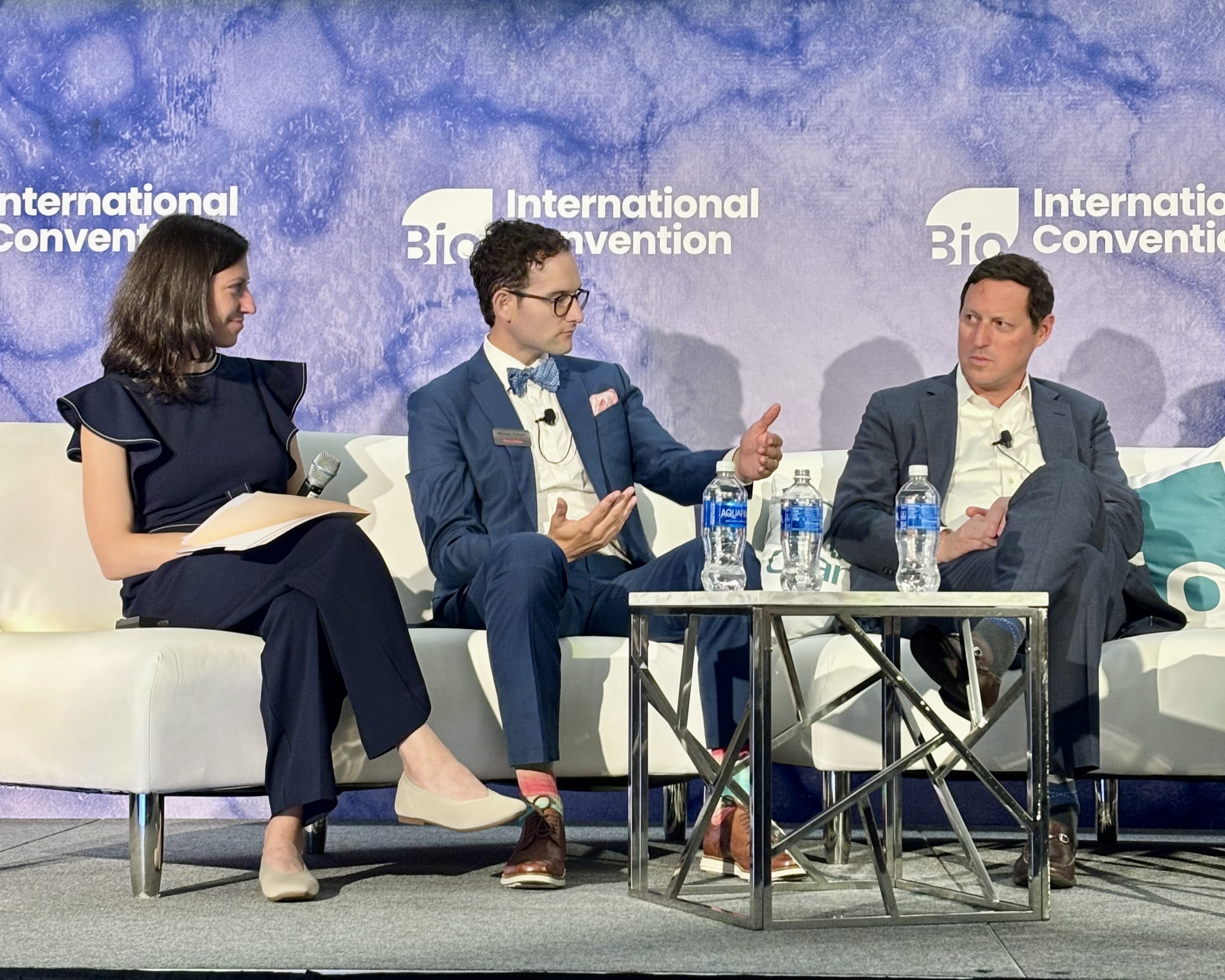 Sharon Gordon (from left), Michael Cohen and Andrew Kaplan.
Sharon Gordon (from left), Michael Cohen and Andrew Kaplan.
Biopharma Leaders of Color (BLOC) attracted a standing-room only crowd during BIO International yesterday with a discussion focused on leadership, innovation and community across the life sciences.
Titled “Innovation in a Changing Environment: Adaptive Strategies,” the panel sponsored by Thermo Fisher Scientific featured Karen Nelson, Ph.D., chief scientific officer, Thermo Fisher; Abbas Kazimi, CEO, Nimbus Therapeutics; Pam Randhawa, founder and CEO, Empiriko; and Dodzie Sogah, Ph.D., chief operating officer, Merida Bioscience. The discussion was moderated by Stephen Abreu, partner, Sidley Austin LLP, and executive director, BLOC.
WHAT THEY SAID:
- “As a community of scientists, [we need] to come together and continue to move innovation forward … take the challenge and turn it into something positive.” - Karen Nelson
- “Now’s the time to do hard things. … But [that idea] has to be differentiated and truly make a difference for patients.” - Dodzie Sogah
- “Leadership is changing a lot – there’s a move from authority to authenticity, charisma to clarity …. less invincibility and more vulnerability.” - Abbas Kazimi
- “Commercializing drugs in the clinic is not possible without academia and government partnerships.” - Pam Randhawa
- “I also truly believe that innovation starts with two-to-three people around a water cooler.” - Karen Nelson
- “Being an immigrant, you’re not asking yourself if the glass is half full or empty – you’re just happy you have a glass.” - Abbas Kazimi
KEY TAKEAWAYS:
- The panelists agreed that innovation is the lifeblood of the biopharma industry – and that will remain unchanged, regardless of market noise or chaos.
- While a changing environment creates challenges, it also sets up an immense opportunity for partnerships. To win, biotech and biopharma companies need to implement technology beyond the health and life sciences spaces, looking into partnership models, licensing deals, spin outs and utilizing academia and government contracts.
- Discipline is more important than ever. In a time where everyone is asked to do more with less, leaders need to drive focus and capital management. There’s value in creating environments where teams can celebrate pausing a low-performing program because it creates opportunity for other drugs and patients.
- Successful leadership approaches are evolving but are as important as ever. Support will follow those who build spaces that foster innovation.
- Talent – finding and investing in it – is key to driving success in a difficult environment. A talented team that is willing to step up and do more with less may not have it easy, but they will find ways to have fun and drive innovative forward.
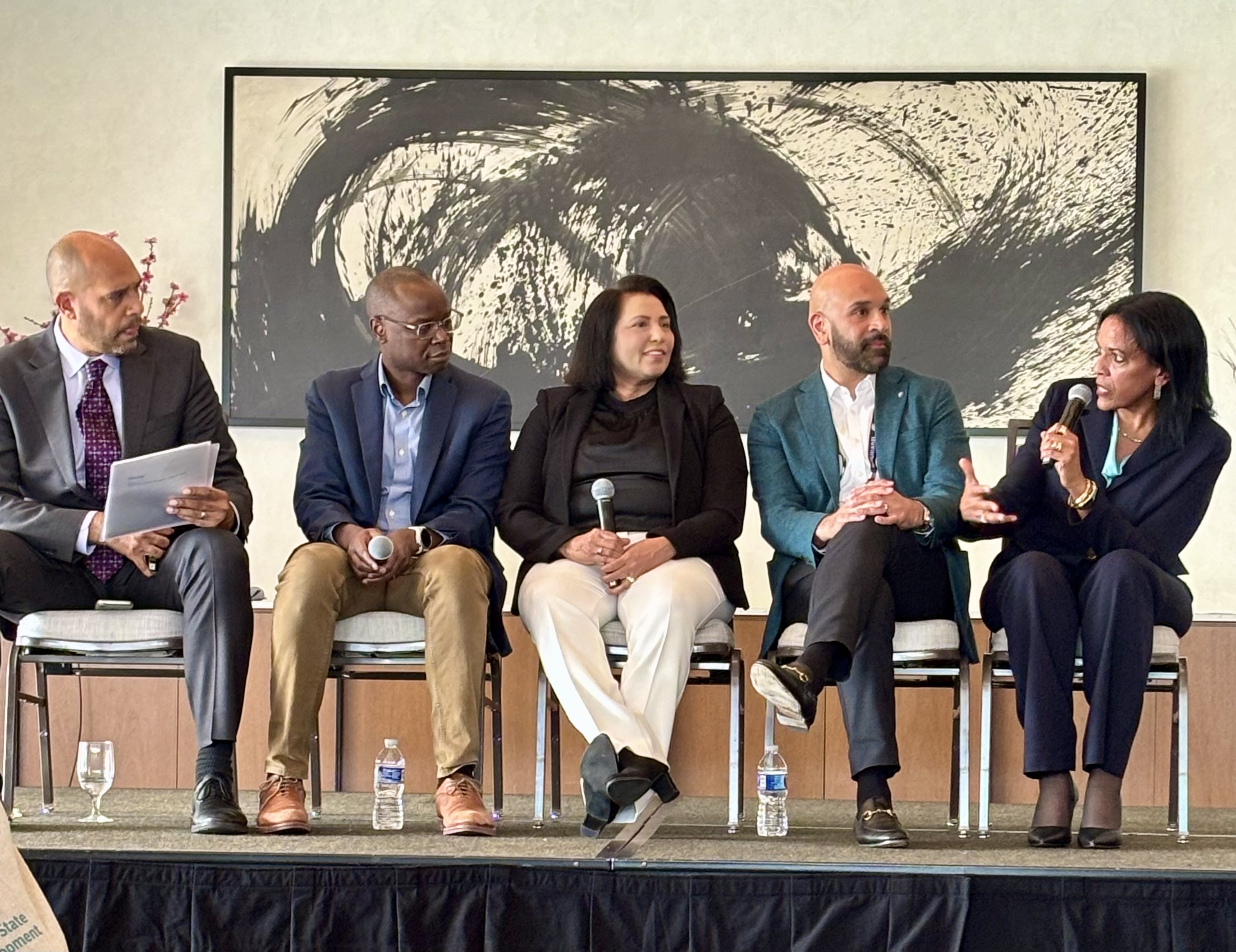 Stephen Abreu (from left), Dodzie Sogah, Pam Randhawa, Abbas Kazimi and Karen Nelson.
Stephen Abreu (from left), Dodzie Sogah, Pam Randhawa, Abbas Kazimi and Karen Nelson.
Long-term life science collaborations require cultural alignment, good communication, transparency and more to drive innovation, efficiencies and increase success in bringing new therapies to patients, according to veteran life science executives participating in a fireside chat titled “The Power of Partnerships: Why Long-Term Strategic Collaborations Matter,” at Bio International today.
The panel included Betty Woo, vice president of the cell, gene and advancement therapies business at Thermo Fisher, and Anne Stone, life sciences investor at J.P. Morgan. The conversation was moderated by Monique Knighten, executive director of Portal Houston, a Texas-based network of life science incubators that hosted the discussion at its Boston location.
WHAT THEY SAID:
- “Everything we do starts with our customers… We feel strongly that the value of partnership must extend beyond an initial transaction.” - Betty Woo
- “Science will not go according to plan… Having a strong collaborative spirit and collegial nature is really essential.” - Anne Stone
- Cultural alignment is going to enable better communications; better communications provide more transparency; more transparency drives increased trust in a relationship, and increased trust ensures longer term success. - Betty Woo
- When it comes to biotech investment, the key is to “meet startups where they’re at with the right resources at the right point in time.” - Anne Stone
KEY TAKEAWAYS:
- The industry’s North Star is helping patients. Innovators can’t afford to be daunted by or afraid of changes; they must collectively ignite scientific advancement to accomplish that central goal.
- The best institutions – of any size or format – are adept at surveying the external environment and developing mid- and long-term strategies based on that.
- When considering external partnerships, look for:
- A shared vision and values
- The right technology to solve a given problem
- Science that’s been demonstrated through data
- Scalability, not only to manufacture at a profit but for practical application of the science/tech
- Differentiation – to take a share of the market and grow together
- Just like investors track companies, companies should also track investors. Publicizing milestones that may be relevant to or address their interests is a great way to personalize follow up for later-stage or longer-term investment.
- The industry isn’t standing still, and serious players can’t afford to either. Success for the whole requires many working in concert with one another and collaborating to sustain momentum together, staying focused on long-term problem-solving to help patients.
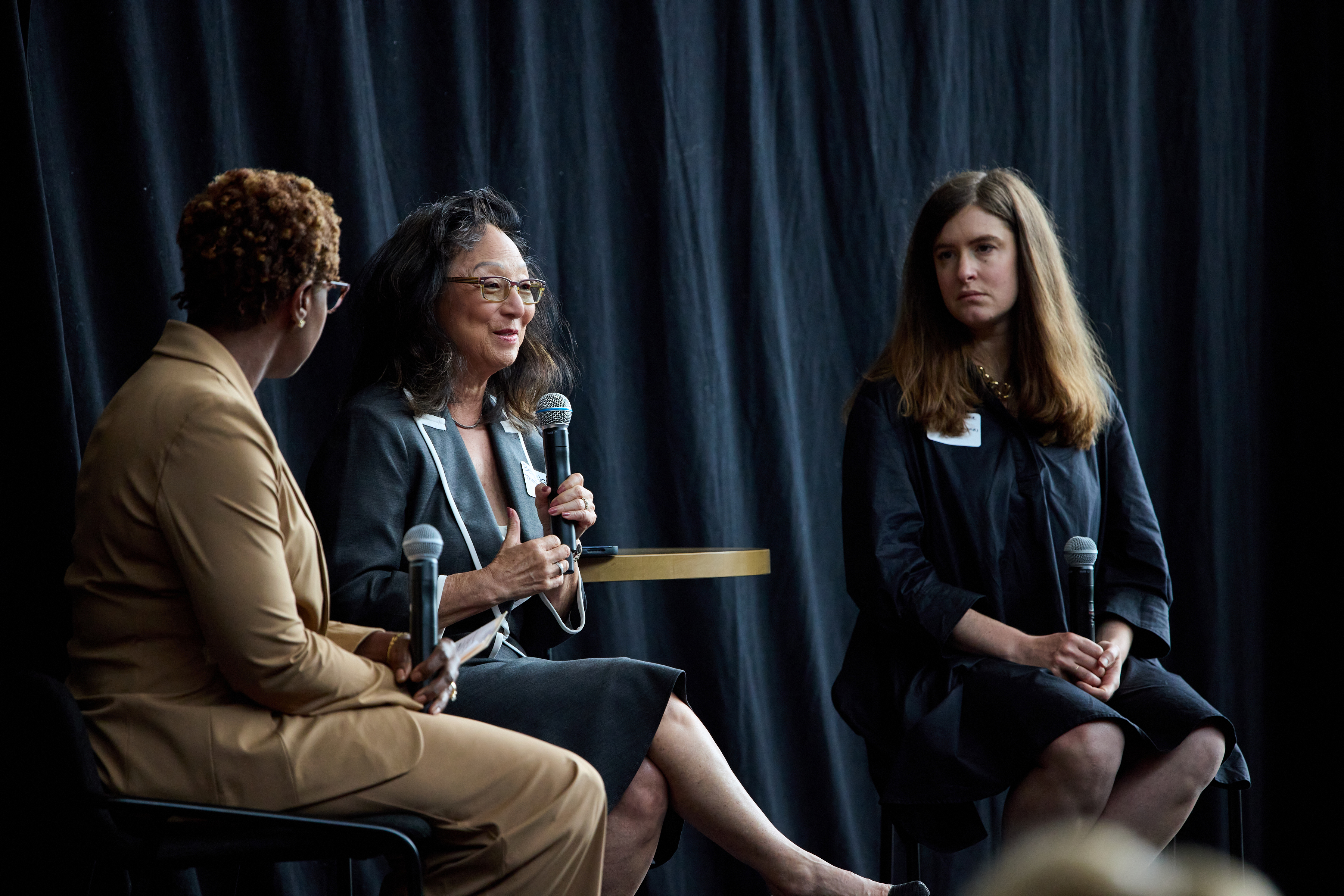 Monique Knighten (from left), Betty Woo and Anne Stone.
Monique Knighten (from left), Betty Woo and Anne Stone.
Thermo Fisher Scientific Chairman, President & CEO Marc Casper joined MassBio CEO Kendalle Burlin O’Connell and Mass. Governor Maura Healey for a fireside chat today at BIO International where they highlighted the Commonwealth’s deep industry roots, dynamic innovation ecosystem and unmatched talent pipeline as reasons why the state remains the world’s largest hub for the life sciences.
Titled “Massachusetts. This is the Place,” the discussion offered the perspectives of leaders helping to shape the future of the industry, as well as Casper’s insights on why Thermo Fisher continues to invest in the region, infrastructure and capabilities. Mass. Lt. Governor Kim Driscoll, State Representative and Speaker Pro Tempore Kate Hogan, and several state legislators were also in attendance.
WHAT THEY SAID:
- “It’s so good to see so many people coming to Massachusetts. And there’s a reason for that. It’s because what you guys have helped to create. You’re a reason people come from all over the world to research, to study, to found companies, to create economic development and growth – unparalleled growth. And it’s also the reason that people come here looking for hope for their loved one who’s dealing with a terrible disease. That’s the footprint of your work.” - Gov. Healey
- “I am just so grateful to Marc’s leadership and Thermo Fisher’s leadership around the world. It helps to bring in more companies and build that ecosystem [in Massachusetts].” - Gov. Healey
- “It’s a little more challenging of a time [right now] in the cycle of life sciences. No matter the challenges of economy, we have everything that we need. We’ve got the human capital. We’ve got the intellectual capital ... and this incredible ecosystem – research institutions, teaching hospitals, innovators and entrepreneurs, partners in government and our private sector. In times of crisis, question or uncertainty, we see the greatest innovations.” - Gov. Healey
- “Thermo Fisher is the largest life sciences company in the world and the largest contract developer and manufacturer of medicines in the U.S. We’re proudly headquartered here in Massachusetts and were founded here in the 1950s. Of our approximate 50,000 employees in the U.S., about 3,500 of them are based here in the state.” - Marc Casper
- "We’re committed to supporting the growth of the industry. As you know, there is a real push to bring more manufacturing back to the U.S., and we’ve committed to invest about a billion-and-a-half dollars across the country in manufacturing capacity.” - Marc Casper
- “About half of our business is supporting the activities of the biotech and pharmaceutical industry, both in designing and executing clinical trials and developing medicine all the way through commercial production.” - Marc Casper
- “Proximity to customers is incredibly important, so we decided a number of years ago to open a state-of-the-art manufacturing center in Plainville, Mass., to support the manufacture of gene therapies. [We chose the location] because of the proximity to so much of the research in the area and access to a great workforce,” - Marc Casper
- “Massachusetts has the richest density of biotech companies, with 18 of the top 20 firms having a physical presence here in the state. We have some of the world’s best academic institutions that are not only training our talent, they are creating companies here.” - Kendalle Burlin O’Connell
- "Massachusetts is the best place in the world for research and development, and we didn’t get here by accident. There have been a lot of challenges, but we haven’t let that stop us, because we have a job to do.” - Kendalle Burlin O’Connell
KEY TAKEAWAYS:
- During times of uncertainty and challenges, collaboration is especially important. Communication and collaboration among the biotech community, the pharmaceutical industry, research institutions, hospitals, universities, venture capitalists, and other funders – is what makes the ecosystem so powerful.
- The panelists agree that there are many reasons for the industry to be optimistic – citing recent scientific discoveries and manufacturing growth in the U.S. as key drivers.
- AI holds great promise at Thermo Fisher – in streamlining lower-value-added work, continuing to scale cost effectively for customers, empowering colleagues with access to knowledge to help solve problems for customers and improving the effectiveness of the company’s products and services.
- Governor Healey shared examples of how Massachusetts is supporting the life sciences industry:
- Re-authorization of the Life Sciences Bill for the next 10 years, which will direct funds to founders, researchers, entrepreneurs and private entities throughout the life sciences ecosystem.
- The Pathmaker program, through the Massachusetts Life Sciences Center, which funds training programs that address critical skills and talent supply gaps and connects skilled workers with life science career opportunities in the state. Thermo Fisher and other local companies are partners in the initiative.
- Ensuring Massachusetts remains number one in the country when it comes to education – both in K through 12 and public higher education.
- Continuing to invest in things that are fundamental to business success, including two of the governor’s top priorities – housing and transportation.
- Continued collaboration across the ecosystem.
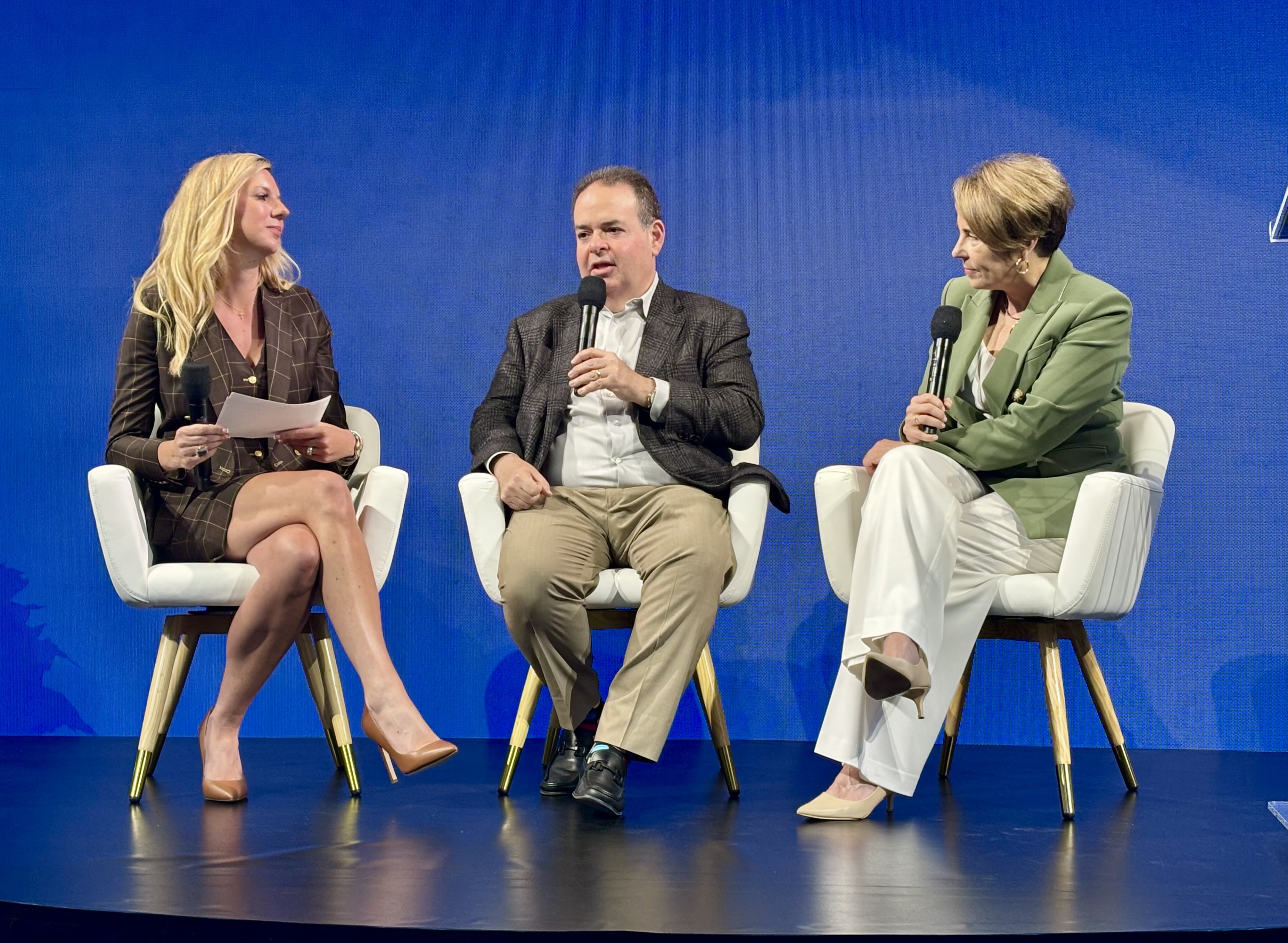 Kendalle Burlin O’Connell (from left), Marc Casper and Gov. Maura Healey.
Kendalle Burlin O’Connell (from left), Marc Casper and Gov. Maura Healey.
Fragmenting regulatory environments, continued risk-aversion in funding, expectations for sustainability and the strategic integration of AI and machine learning in the biotech industry were hot topics Tuesday during “Discussing the Future of Biotech: Innovation, Sustainability, and Growth in a Dynamic Landscape,” a panel at Bio International sponsored and hosted by Thermo Fisher Scientific.
Disruptive innovations expected to improve patients’ lives and a new generation of tech-savvy workers were positive changes expected in the coming years by the panelists, who included Stephen Grant, chief operating officer, Fractional; Parika “Pinky” Petaipimol, vice president of technical operations, Upstream Bio; and Brian Tham, principal consultant, Peregrine Bio. The panel was moderated by Ben Castro, vice president and general manager, large molecule, pharma services, Thermo Fisher Scientific.
WHAT THEY SAID:
The panel highlighted a few disruptive innovations and trends they see in the biotech industry.
- “As technology progresses, dosing frequency is of growing significance. Improvement in dosing frequency is putting more focus on patients and allowing them to live the lives that they want and not focus as much on their diseases. This improved technology also leads to less waste and improved sustainability.” - Pinky Petaipimol
- “In the coming years, I expect that regulatory environments may become more fragmented as regions develop their own standards. The macro environment is becoming less collaborative and less cooperative. I can see biotechs taking more ownership over our own regulatory paradigms.” - Brian Tham
- “Artificial intelligence and machine learning are viewed as transformative forces in the industry, touching all aspects of biotech – from discovery to patient engagement, although it seems that their full potential in manufacturing is yet to be unlocked.” - Ben Castro
- “Overall manufacturing costs remain high, despite adoption of efficiency technologies. Industry tends to value innovation that eliminates disliked tasks, even at an additional cost, as seen previously with single-use technologies. I see this as an opportunity for AI in our industry – where scientific innovation meets operational and economic reality.” - Brian Tham
- “The biotech investment climate is currently risk-averse, with funding favoring safe, proven indications over riskier therapeutic areas. Success in competitive markets requires not just better products, but those with compelling delivery or expanded indications.” - Steve Grant
- “Over the next five to ten years, we’re anticipating a tech-savvy new workforce that will drive AI adoption, but it will also be important for them to gain and retain an understanding behind the technology to have that experience on the shop floor.” - Pinky Petaipimol
- “In the area of sustainability, it is important to align your values as a company with like-minded companies when choosing a CDMO or other partner. Making sure to keep those values at the center of your relationship and then measuring performance around that is critical.” - Ben Castro
KEY TAKEAWAYS:
Panelists shared these recommendations for biotech and pharma companies as the industry looks to the future:
- Integrate sustainability KPIs and align with operations partners, including CDMOs
- Promote creative funding models, especially with boutique CDMOs.
- Create clear ethical and regulatory guidelines for AI/ML adoption in biotech.
- Invest in training for technical AI skills and industry knowledge for new employees.
- Increase internal awareness and practices for waste reduction and sustainability.
The expert panel shared their optimism for the future, specifically when discussing the younger generation entering the workforce and offered the following career advice for newcomers:
- Recognize biotech as a stable and rewarding industry for long-term career paths.
- Embrace lateral career moves; they enhance breadth and versatility.
- Maintain reputation and integrity; biotech is a close-knit, interconnected field.
- View failure as a chance to learn; resilience and determination are essential.
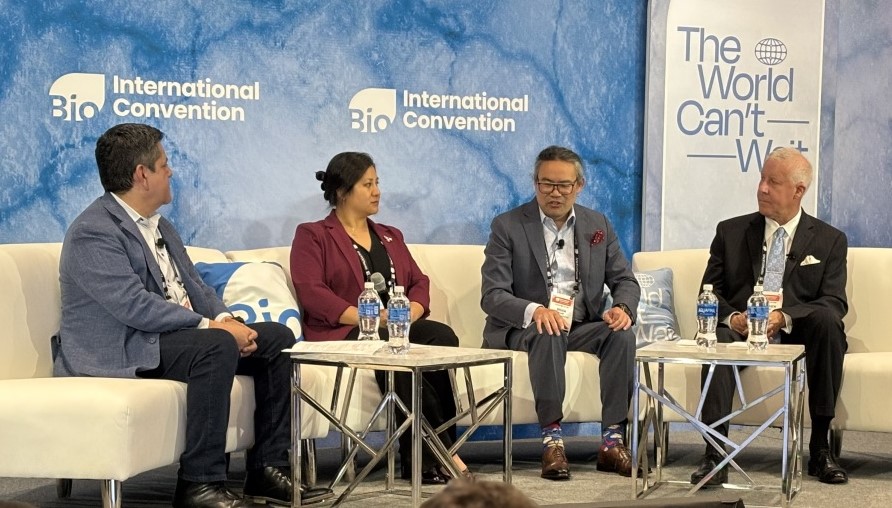 Ben Castro (from left), Parika “Pinky” Petaipimol, Brian Tham and Stephen Grant.
Ben Castro (from left), Parika “Pinky” Petaipimol, Brian Tham and Stephen Grant.
At the heart of many conversations happening throughout BIO International is the biopharma industry’s ever-present need to deliver new therapies to patients faster. In a panel discussion today. titled “Unlocking better outcomes: Where diagnostics meet therapeutics,” collaborators Daniella Cramp, senior vice president and president of Bioproduction at Thermo Fisher, and Joannah Kim, scientific advisor at TrilliumBiO, explained how companion diagnostics, technology and using AI and metadata to add perspective to clinical results, address the need for speed. The discussion was moderated by Betty Woo, vice president, cell, gene, and advanced therapies at Thermo Fisher.
WHAT THEY SAID:
- “No company can do everything … Collaborative spirit and partnership are essential for the industry to be lifted up.” - Betty Woo
- “We’re witnessing a tiny molecule evolving into a life-changing therapeutic … That journey is very iterative and data driven.” - Joannah Kim
- “Patients are waiting for new therapies all the time, and waiting to access them and making them accessible also means making them cost-effective. So, there’s a real opportunity there … and manufacturing technology allows customers to unlock potential.” - Daniella Cramp
- “[We need to] stay in front of new, innovative tools and embed them into service models … [to] make the science better for the patient that it serves and make a positive impact on patient lives. [We] can’t do it without collaboration or innovation.” -Joannah Kim
- Regarding data from a new study by the Tufts Center for the Study of Drug Development that highlights the benefits of an integrated CDMO/CRO partner model, “that’s so material when you think about patients who are waiting for compelling therapies that are going to be life-changing.” - Daniella Cramp
KEY TAKEAWAYS
- AI creates an opportunity to generate multidimensional data versus solely lab results. Coupling metadata – ranging from demographic information to previous and current disease states, ongoing treatments and more – with clinical outcomes creates an invaluable resource, allowing drug developers to capture which patients are at risk and how to modify treatment, if needed.
- The journey from molecule to medicine benefits from an ongoing feedback loop: Run the test, share the data, tweak the design and repeat until everything aligns. The endgame is straightforward—get the right patients on the right treatment as quickly and effectively as possible. That’s the real impact of laboratory diagnostics: turning promising medical science into real-world impact.
- When it comes to collaboration and partnership, the sooner it begins, the better. It takes ample time and early engagement to develop synergies, understand needs and guide the strategies that drive the journey from molecule to medicine.
- Biotech and biopharma customers are always looking to enhance cost efficiency – and therefore productivity. Technology driving process intensification and continuous manufacturing gives customers the ability to work with more speed and agility as they get products to market.
- Companies are under pressure to move faster than ever, which means navigating tight timelines, compressed development cycles, a rapidly changing regulatory landscape and more – all while managing the complexity of the therapies themselves. To ensure success, drug developers must be more flexible, agile and collaborative than ever before.
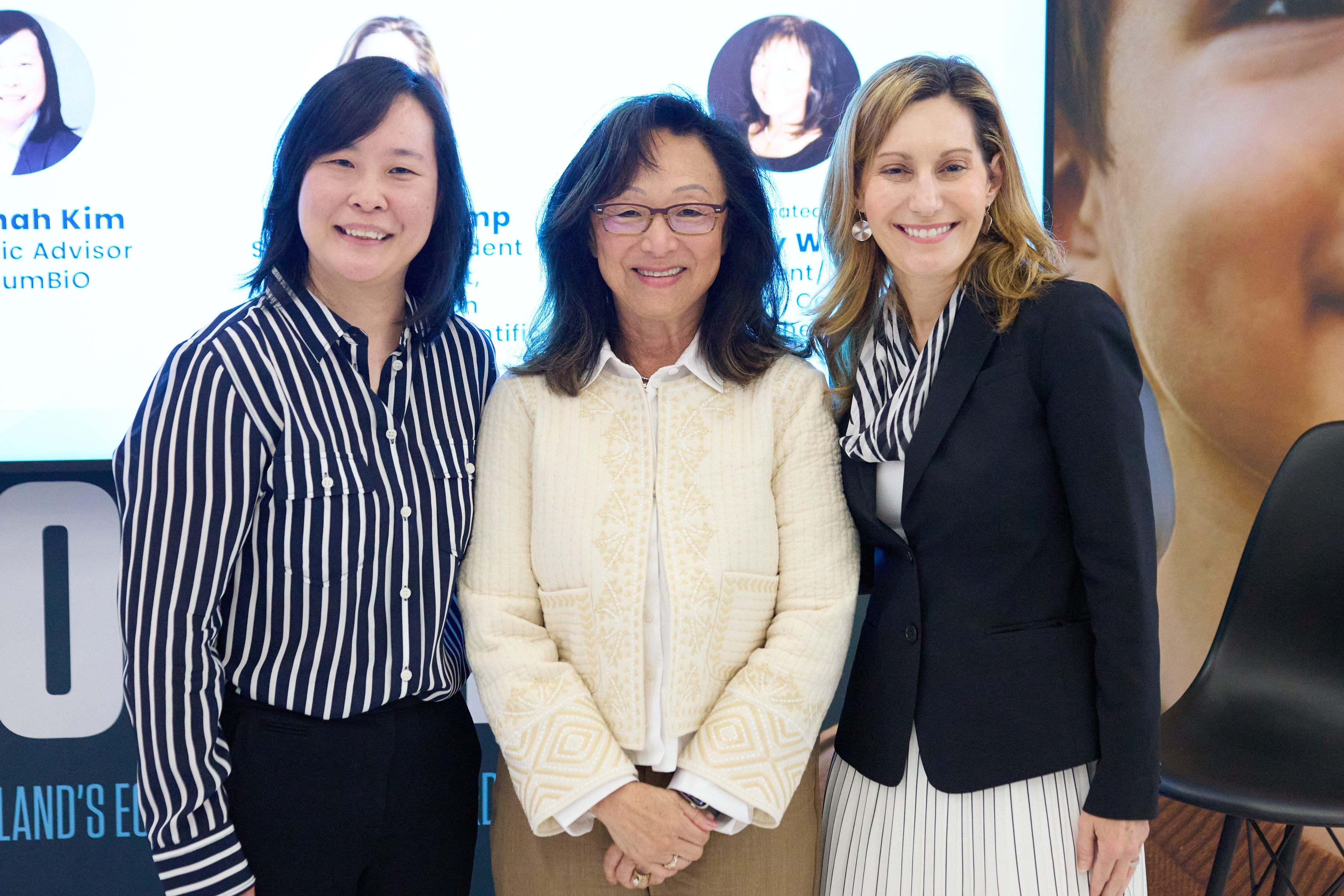 Johannah Kim (from left), Betty Woo and Daniella Cramp.
Johannah Kim (from left), Betty Woo and Daniella Cramp.
Thermo Fisher Scientific participated in an interactive discussion Wednesday alongside biotech industry leaders – including educators, physicians and entrepreneurs – to provide students with guidance and connections to help them navigate entry into the biotech industry.
Held during BIO International and titled “Breaking into Biotech,” the event featured speakers Rose Blackburne, vice president, global head of population science strategies and women’s health, Thermo Fisher Scientific; Stacey Hawkins, founder and CEO, Biotech Primer, Inc.; Jeffrey Herrera, associate director, Employee Experience and DEI, Vir Biotechnology, Inc.; Natalie Kuldell, executive director, BioBuilder Educational Foundation; Wyatt McDonnell, Ph.D., CEO and co-founder, Infinimmune; and moderator Leah Lindsey, lead, research and development science philanthropy and community engagement, Takeda Pharmaceuticals.
The leaders shared their personal career journeys and insights, highlighting the tips that aided their own success. After the discussion, students had the opportunity to engage with the panelists through a question-and-answer session.
WHAT THEY SAID:
- “When approaching a first impression or coffee chat, rehearse in advance. Think about what you want to say and rehearse in the mirror or with someone else. Have your points together, and be crisp, passionate, upbeat and confident. This may not come naturally, but you have to get your points across and talk to different people. That first impression makes a lasting impression." - Rose Blackburne
- “It's about what you care about, what your values are. Think of yourself as a culture advertisement; the fresh perspectives you can bring to the table are uniquely yours. Pulling from these great experiences will help you as you ‘sell’ yourself.” - Jeffrey Herrera
- “Lead with your purpose and own your intellect. It may take several times to say the same thing, but resilience is one of the best traits to cultivate or have—you still need it at any level. Be brave!” - Rose Blackburne
- “There are several things that students can do to cut through the noise. I suggest asking family and friends for contacts in healthcare. Starting broad is helpful. When talking to someone in biopharma, it’s important to keep the chain going by asking for one or two additional contacts. I also suggest volunteering with state biotech organizations. And don’t worry about the ‘no’ - you have to get yourself comfortable!” - Stacey Hawkins
- “When looking for that first role or internship, I recommend starting somewhere – finding that one entry point. I find that most people in bio, because it's a small sector, are friendly and want to help others. If you are genuine and showing interest in what they do, how you believe in their mission and want to contribute to it, you would be surprised at the connections you can make.” - Wyatt McDonnell
KEY TAKEAWAYS:
- Everyone has a unique journey. It’s important to think about what you want personally for your life and family – and then matching that up to your career choice.
- Getting medicine approved is a rigorous task. Panelists expressed to the audience that because it’s hard to build tools and medicines, it is important to find something that you love to do and connect with something that you’re passionate about.
- Because the industry is tackling some of the greatest problems known to mankind, it is vital that its members never quit. It’s critical to learn, retool, go back to the drawing board and try again because of what is at stake in the field – patient lives.
- In science, you can separate the failure of an experiment from the quality of a scientist. Don’t look at the results as an indication of who you are as a scientist – recognize that it’s an experiment, and you’re looking at the changing landscape to figure things out.
- In building and maintaining relations, ask a question that helps to understand how that person sees the world. Getting to know people helps you to understand who you get along with and who you may not get along so well with.
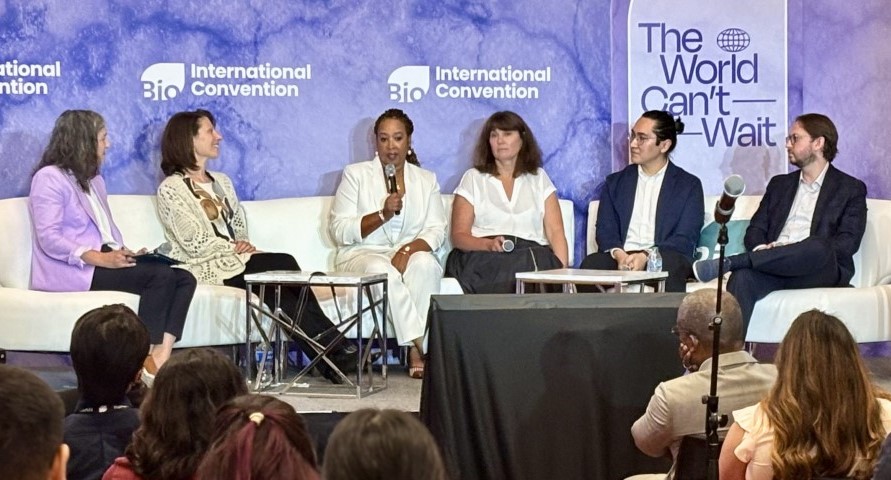 Leah Lindsey (from left), Natalie Kuldell, Rose Blackburne, Stacy Hawkins, Jeffrey Herrera, Wyatt McDonnell.
Leah Lindsey (from left), Natalie Kuldell, Rose Blackburne, Stacy Hawkins, Jeffrey Herrera, Wyatt McDonnell.
